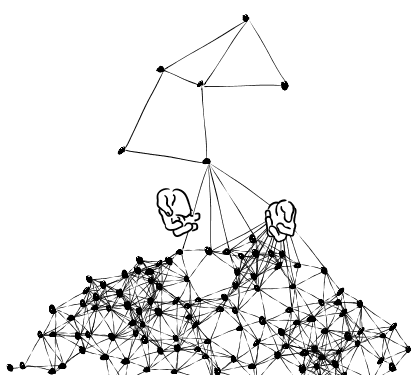Again [about how to become smarter: repetition and cramming]
The article that it should be re-read 10 more times.
- from comments
Repetition as a basis for creation

Nowadays, many designers are developing "smart" things that promise to improve and strengthen our mind, performance and well-being. I personally like to shift the emphasis from doing things around us smarter, so that we become smarter . So this is a fairly simple method that will help you learn and come up with ideas: repetition .

Easy way to learn something difficult.
When it comes to learning something complicated, like programming, repetition is a great way to get started. Every time you feel stupid about another difficult tutorial, just find a code that you can repeat, and type it in several times.

This is a great way to learn something new. And this way is quite relaxing, since you do not feel any pressure. You just drive new data into your brain!
')
When you learn something by heart, it is different from, say, storing data on a flash drive. Every time you repeat something, the new information will be integrated into the rich network of existing information.

Therefore, it may seem like you are doing the same thing over and over again, but in fact there are no two identical repetitions. After a lot of repetitive exercises, the initial problem (in our case, a programming tutorial) will be easier to understand.
Repetition and memorization of facts have a bad reputation. Sometimes we think that we don’t need to know the details, just the connections. But if we want to understand the big pictures and connect the dots, we first need ... the dots themselves!
Rich soil for ideas
When we know by heart historical dates, foreign words or programming commands, this gives us an understanding of great contexts and helps us come up with new ideas. The “idea” is, in essence, a new combination. Your brain takes pieces of knowledge, and sometimes some of them connect to form a solution that we enjoy, as our bodies emit happiness hormones as a reward.

A simplified model for generating ideas may look like this: you fill your mind with knowledge (facts, experience, emotions, etc.) about your subject. Then you let your mind marinate in all of this and make connections. (Of course, everything is a little more complicated, and the creation of ideal conditions for such connections is an art form — that is why many books have been written about creativity.)
Obviously, you are more likely to come up with ideas when you have more information at hand. But the chances are even higher if you have the knowledge you know by heart, because your brain has easy access to them! Using external knowledge and finding the right information will take much more time and effort.

Internal knowledge is the ideal ground for new ideas, because you have easy and fast access to highly interconnected information.
So instead of creating “smart” things that we remember for us, we could sometimes invent things that help us learn and remember.
Source: https://habr.com/ru/post/441656/
All Articles